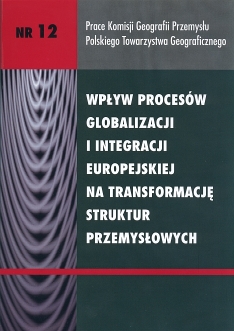European Union, globalisation and Poland
DOI:
https://doi.org/10.24917/20801653.12.15Keywords:
European Union, globalisation, PolandAbstract
International economic integration, or globalisation, has a long history, dating from the Medieval period; the establishment and later extension of the European Union is part of this process. It is argued that EU membership has brought undoubted advantages, such as support for agriculture and for regions of high unemployment, and the removal of tariffs against Polish goods, but the huge changes experienced by Poland date from the introduction of the market economy in 1989, not from EU membership. The market economy is synonymous with globalisation, which is so powerful that countries are forced to adapt to it, and make changes within this framework. There have been changes since 2004, the most important of which is mass emigration to the UK, Ireland, Germany and Spain, but it is thought that this movement is only short-term, since most Poles intend to return to Poland, having accumulated capital. It is too soon to be able to establish the full impact of EU membership. It seems that a much longer period must be allowed to elapse before it is possible to assess the value of EU membership to Poland. But in any case, it is clear that Poland has become part of the globalisation and economic integration process - something that will be emphasised owing to membership of the EU.
Downloads
References
Blacksell M. and Williams A. M., 1994, The European Challenge, Oxford Univesrity Press
Cole J. and Cole F., 1993, Geography of the European Community, Routledge
Davies N., 1997, Europe. A History, Oxford University Press
Geografia gospodarcza Polski, 2004, I. Fierl, red., PWE, Warszawa
Grabher G. and Stark D., 1997, Restructuring Network in Post-Socialism, Oxford University Press
Taylor M. and Thrift N., 1986, Multinationals and the Restructuring of the World Economy, Croom Helm
Watts H.D., 1981, Branch Plant Economy, Longman
Węcławowicz G., 1996, Contemporary Poland Space and Society, University College London Press
Downloads
Published
How to Cite
Issue
Section
License
Articles are published under the terms of the Creative Commons License (CC BY-ND 4.0; Attribution– NoDerivs).

